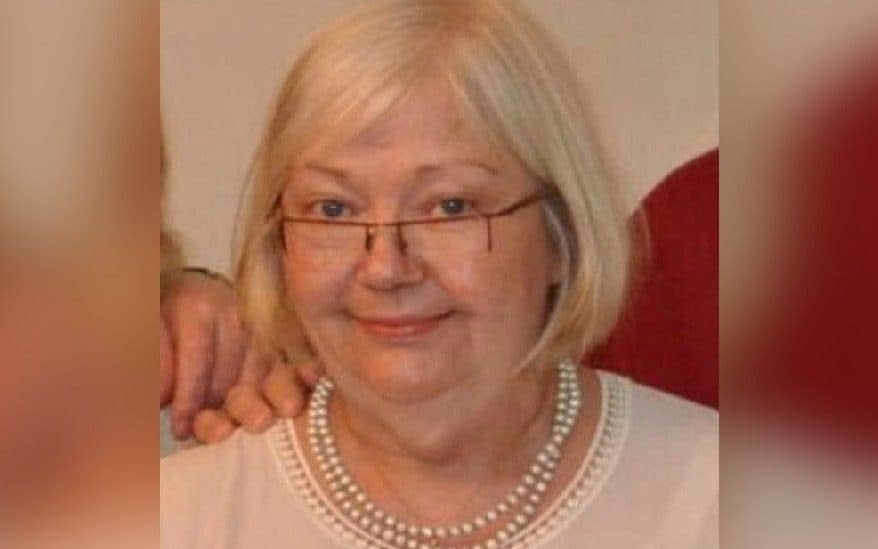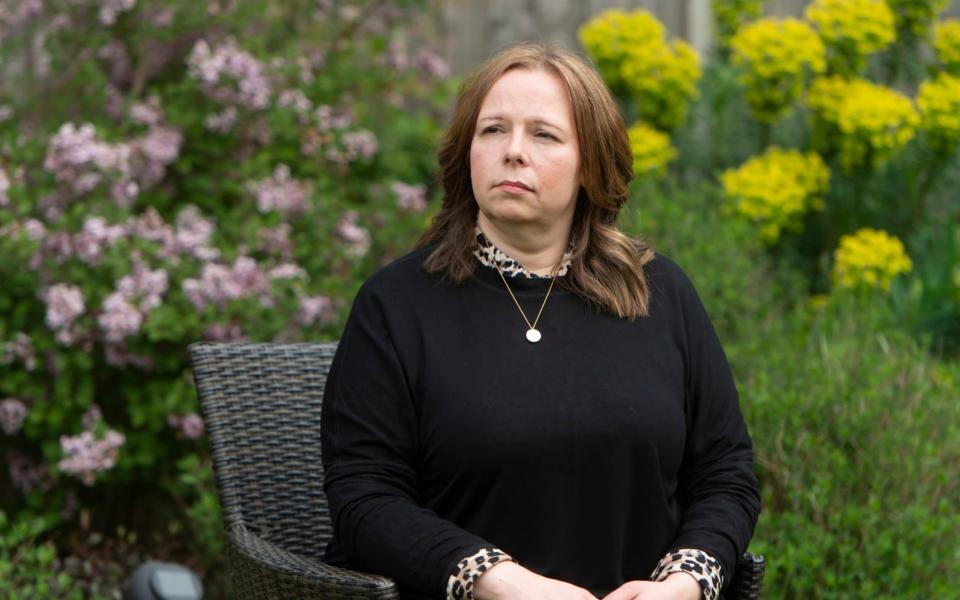Police investigate if anti-psychotic drug caused lecturer's death

Police are conducting an investigation into the death of a woman who was allegedly given higher than recommended doses of a powerful anti-psychotic drug at a mental health unit.
Margaret Molyneux, 69, a former lecturer, was undergoing treatment for bipolar disorder when she suffered a series of complications and died in hospital three days after choking in July 2017.
A coroner ruled that she had died of natural causes, but Hertfordshire Police launched an investigation into allegations of gross negligence manslaughter, after a review found that Ms Molyneux had been prescribed higher than recommended doses of the drug Olanzapine.
Her daughter, Petria Foley (pictured below), believes the anti-psychotic medication caused dangerous side effects - including choking - which were not picked up by the psychiatrists treating her and eventually led to her death.
The Telegraph can reveal that detectives have now appointed a forensic toxicologist to look into the case before deciding whether to bring any charges.
Ms Molyneux, a mother of two, was admitted to the Kingfisher Court mental health unit in Radeltt, Hertfordshire in March 2017, after being sectioned following a relapse of the bipolar condition she suffered from.
She was prescribed Olanzapine, a powerful anti-psychotic drug that is used to treat a range of mental health conditions including schizophrenia, depression and bipolar disorder.
But it has also been linked to a variety of side effects and in 2018 Avon and Somerset Police launched an investigation into the death of teenager Oliver McGowan, who died after being prescribed the drug.
In the weeks leading up to her death, Ms Molyneaux, had a series of falls and also suffered from sepsis, pneumonia.
She also developed dysphagia - a condition where swallowing becomes difficult - and Ms Foley is convinced it was the medication that was causing the physical problems.
She said despite her mother’s deteriorating condition, the drugs continued to be prescribed and medics also stopped her mother from smoking which meant the medication had an even more powerful effect.

Ms Foley said she believes her mother's death was entirely avoidable and she has also accused the local health trust of attempting to cover up the facts of the case.
She told The Telegraph: "I just can't understand why she was being given the high doses of Olanzapine, especially when she started to display side effects.
“It was agonising to watch my mother suffer as she did towards the end but they continued to prescribe the medication in doses above the recommended levels.
"There was written advice suggesting that the medication was causing a risk of choking, but that advice was ignored and I am convinced that had the Olanzapine been stopped she would have recovered.”
Ms Molyneux, who was born in Ireland but moved to the UK when she was nine-years-old, worked as a lecturer having obtained an English literature degree in her 30s.
She began to be treated for mental health problems following a breakdown in her 40s, but had been stable before her relapse in 2017.
After being admitted to Kingfisher Court she was prescribed significantly higher than recommended doses of Olanzapine in a bid to stabilise her.
When her physical health deteriorated she was transferred to Watford General Hospital but after recovering was moved back to Kingfisher Court where the medication programme continued.
Within days her dysphagia returned and she was readmitted to Watford General Hospital where she died on July 5.
Ms Foley said: “I believe my mother would still be here today if it had not been for the care she received and I am determined to pursue this until I get some answers and hopefully some justice.
“I would never have gone this far if the health trust had owned up and apologised for what happened.”

A spokesman for Hertfordshire Constabulary said: "Enquiries are currently being carried out by officers from Hertfordshire Constabulary’s Safeguarding Command, following allegations around the medical treatment of a woman who subsequently died in 2017.
"No arrests have been made at this time and the investigation is continuing; it would therefore be inappropriate for us to comment any further."
A spokesperson for Hertfordshire Partnership University NHS Foundation Trust said: “We continue to offer our condolences to Ms Molyneux’s family for their loss.
"We shared the findings of our investigation into Ms Molyneux’s care with her family and are currently helping the police with their enquiries, so it would be inappropriate for us to comment further at this stage."

